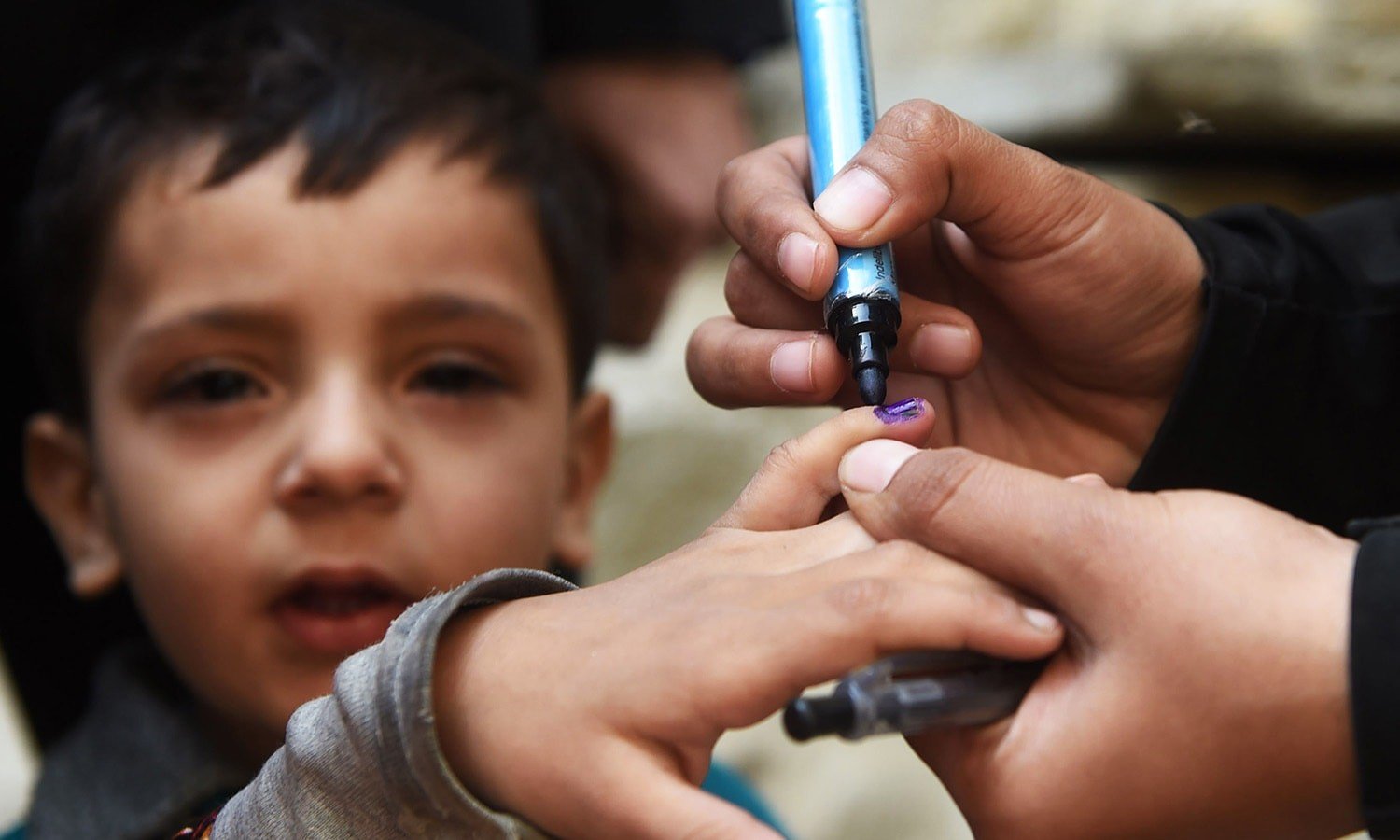
The detection of five polio cases in Bajaur is shocking but even more alarming is discovery of ink marks on fingers of children not vaccinated

Only after polio crippled his 30-month-old grandson Mustafa, elderly Khaista Khan from Talai Banda in Salarzai sub-division of Bajaur tribal district regrets why the family did not get their children vaccinated. Mustafa is one of the three cases reported from Bajaur in the last few weeks.
"Every parent must vaccinate their children against polio to save them from becoming paralysed for the rest of their lives," stresses Khaista Khan in a video message after he came to know his family’s negligence had deformed his grandson.
Investigation into the recent cases from Bajaur reveal that the Mustafa’s house was marked as ‘1×1’ in Dec last year which means the house has one child and which has been vaccinated. The fact is there are four children in the house -- which has made everyone wonder whether it was the family’s fault or the local anti-polio vaccination staff’s negligence.
Apart from Mustafa, 78-month-old Nabila from the same locality has been crippled by polio. In a third case, 46-months-old Abdul Rehman has been detected with the disease in the same union council of Bajaur in recent weeks. A total of five polio cases have been reported from Bajaur last year. In reaction, the authorities in Bajaur have already dismissed three government officials and four officials representing the international bodies.
More cases have been reported from other parts of the country, including three from Balochistan and one each from Karachi, Khyber, Lakki Marwat and Charsadda.
Despite thousands of workers engaged in the vaccination of children for many years, polio cases are still surfacing across the country, exposing negligence of the government as well as the world bodies that spend billions of rupees to end the crippling diseases.
The remote areas of the country were once a target of the propaganda campaign that the polio vaccine caused infertility. But, presently, "almost all parents get their children vaccinated against polio," says Yousuf Ali, a resident of Utmankhel, Bajaur. He suspects the rise in the number of polio cases in his area could be because of limited access of the vaccination teams to children.
Over 829 teams have been tasked to ensure vaccination of every child in seven sub-divisions of Bajaur. These include 776 mobile teams, 41 teams serve at polio clinics and 12 teams on transit points. 184 areas incharge are supervising these campaigns.
"The issue of fake finger marking is causing all the problems. I asked the deputy commissioner Peshawar to delay the campaign on the first day of the latest campaign on January 21 for two hours. We were shocked to see over 300 cases of fake finger marking in just four union councils of Peshawar when none of our teams had come out to vaccinate children," Babar Bin Atta, Prime Minister’s Focal Person on Polio, tells The News on Sunday. He adds all these parents were listed as refusal cases.
"The thing to worry is how the parents got access to polio markers. They’re used only by the polio staff," Atta says. The concerned authorities are investigating the case and have requested WHO to provide multi-coloured markers to avoid fake marking in the future. Besides, he adds, "accountability is the key to find why vaccine is not reaching children despite years of vaccination campaigns".
During the last campaign carried out in KP on Jan 21, 2019 around 15,000 cases of refusals were reported, and some 70,000 children could not be vaccinated for reasons unknown. Babar Bin Atta further informed that 7,500 were from Peshawar. He, however, added that the children who could not be reached were around 30,000.
Just when we were just about coping with the news of the rise of polio cases in Bajaur, images and videos of polio vaccinators braving extreme weather and knee-deep snow to reach the target children flooded the social media. "I called Sahibzada Irfan Ullah [vaccinator] and the man who was making his video. They were invited at the Prime Minister House for lunch. Two polio workers from Swat and one from Lakki Marwat were also invited with them. They are the real heroes," Atta informs.